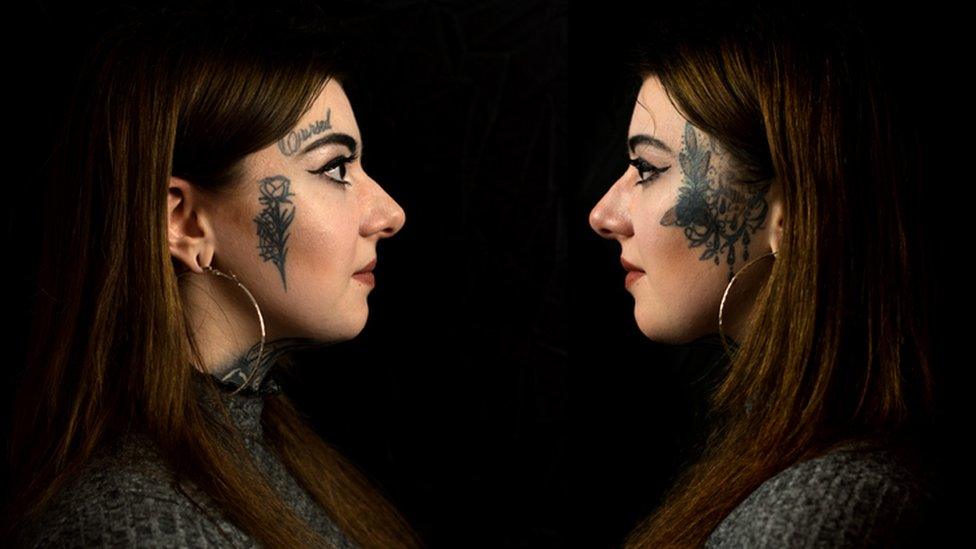Autism: People face 'daily discrimination' in work
- Published
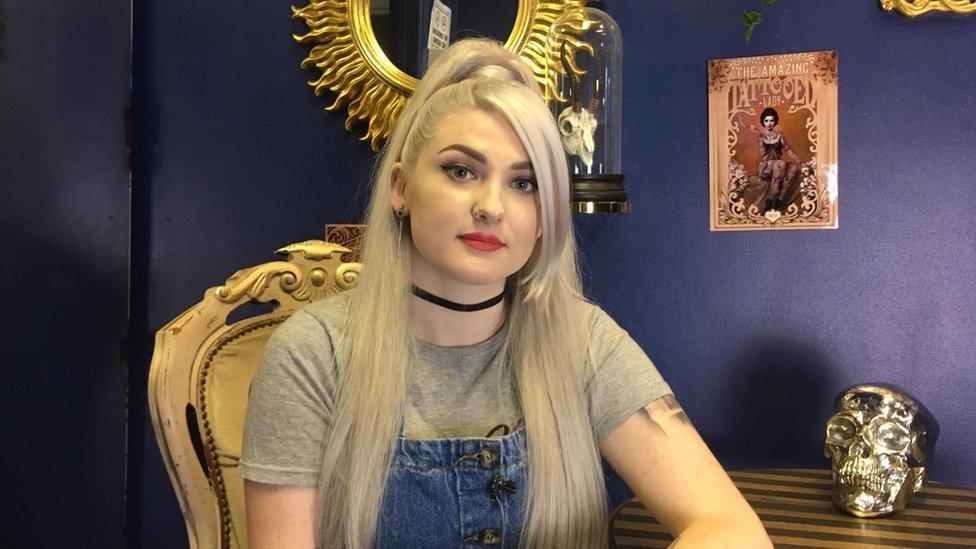
Charlotte Davies said going into work was very stressful due to a fear of social interaction
"I have had people say 'you can't be autistic, you have a TV career', but they can't see behind closed doors."
Charlotte Davies spends hours tattooing in her studio in Blaenavon, Torfaen, and is even a star on an MTV show.
But when she was a cleaner, the 27-year-old sometimes found it so overwhelming she hid in a cupboard.
Charlotte Davies says not enough was being done to help autistic people get into work and keep their jobs
She spoke out as trade unions said not enough was being done to help autistic people get into work and keep their jobs.
The Welsh Government said it was working to remove barriers to employment and change people's attitudes to disability.
An estimated 31,000 people in Wales have autism, a developmental disability that affects how people perceive the world and interact with others.
A Wales TUC survey showed only 16% of autistic adults were in full-time paid work, while 77% of those out of work said they wanted a job.
The union said it was dealing with cases where staff were not getting reasonable adaptations in the workplace, required under the Equality Act.
People who contacted BBC Wales spoke of feeling "overwhelmed" and said there was a lack of understanding from bosses and co-workers, and an unwillingness to make adaptations.
Others said they dealt with stereotyping while others had never worked due to issues with interview processes.

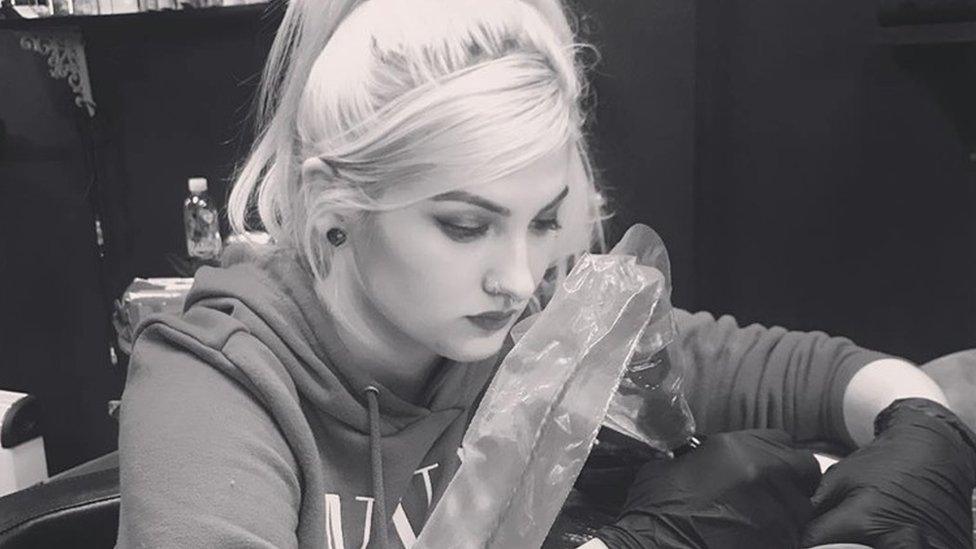
Charlotte Davies said little things such as mobile phone ring tones could be really "painful"
'I felt trapped'
Charlotte Davies, known as Charl, has almost 50,000 followers on Instagram, her own YouTube channel and stars on an MTV show about tattoo artists.
"I absolutely love being on camera, but it is the breaks between, it is hell sometimes, I am out of my comfort zone," she said.
She said she has felt "different" since she was 10: "I started to feel like I had a piece of me missing, I felt a bit alien."
After trying to get help from her GP in her early 20s, she was diagnosed with autism two years ago after a "meltdown" while out for a meal with fellow cast members.
"I felt trapped and I couldn't speak, they call it selective masking, I couldn't answer anyone," she said.
Some people do not believe me, they say “you don’t look autistic”, but what does autistic look like?
Before opening her tattoo studio, Charl worked as a cleaner, but found it overwhelming.
Now her own boss, she has adapted her workplace, changing the lighting and sometimes she wears noise-cancelling headphones, but still has days when she struggles to get into work.
One of her biggest challenges is going to the bank due to a fear of social interaction.
"But if I don't work I don't get paid, because I can be so confident and independent people don't understand.
"Being my own boss is the only way I feel I could survive in the working world, I don't believe employers would have the patience or the understanding to deal with someone like me."
I get really overwhelmed with people and I physically can't talk, how would you explain that to an employer in the working world?

A report into services in Wales earlier this year said there had been limited progress in employability improvements and it was too early to judge if new schemes had made an impact.
Since its 2015 launch, just 1,010 people have completed the working with autism programme, external.
Fewer than 100 companies have signed up to the positive about working with autism charter, external, with some health boards, police forces and other public bodies not named in the list.
Gareth Hathway, from Wales TUC, said many workers faced daily discrimination, mainly due to ignorance.
"Our research has shown many employers are unwilling to make even the smallest of adjustments to make their workplace a little bit more autism friendly," he said.
"So those changes could be introducing autism awareness training, considering how they communicate with staff and reducing any unnecessary noise or smells in the workplace."
The TUC wants companies to have compulsory autism training and improve recruitment processes.
Meleri Thomas, of the National Autistic Society Cymru, said: "With a little understanding and small changes to the recruitment process and workplace, autistic adults can be a real asset to all sorts of businesses."
The Welsh Government said it was due to publish a new framework to deal with addressing the barriers disabled people face and was "committed to helping disabled people fulfil their potential and achieve their ambitions".
- Published2 April 2019

- Published22 August 2019
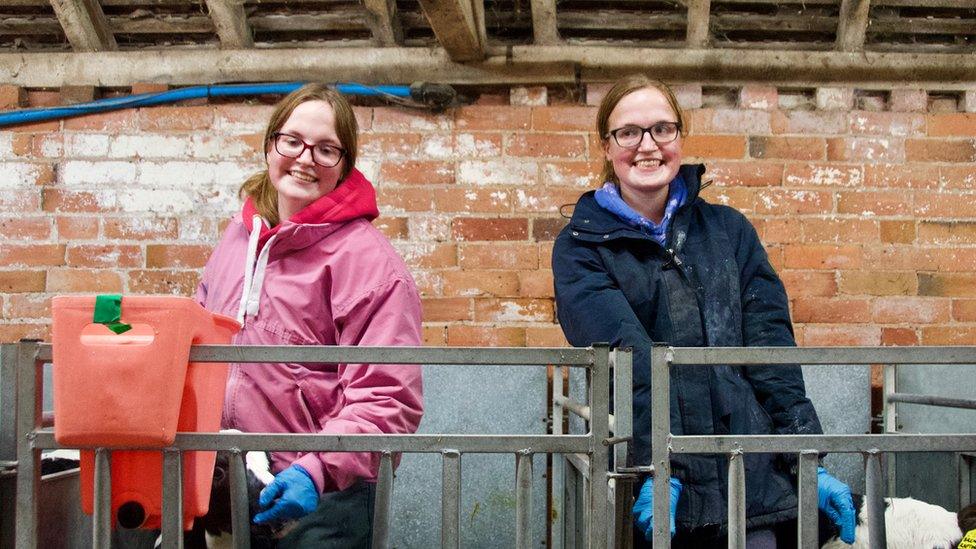
- Published25 March 2019
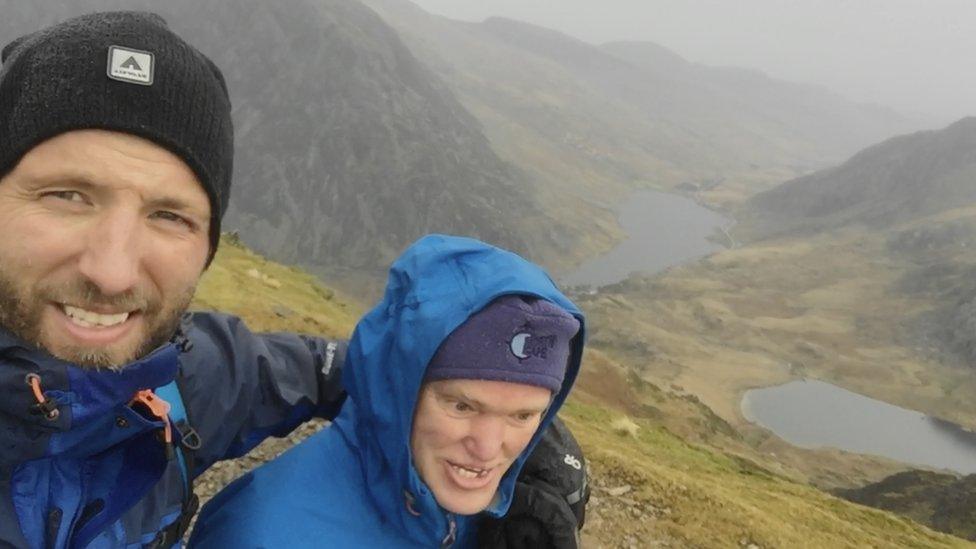
- Published27 January 2019
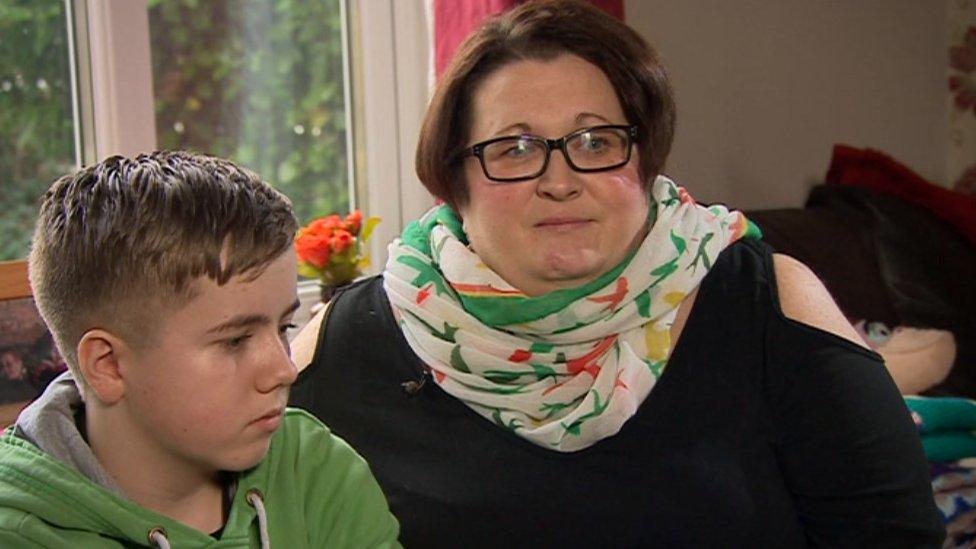
- Published9 May 2019
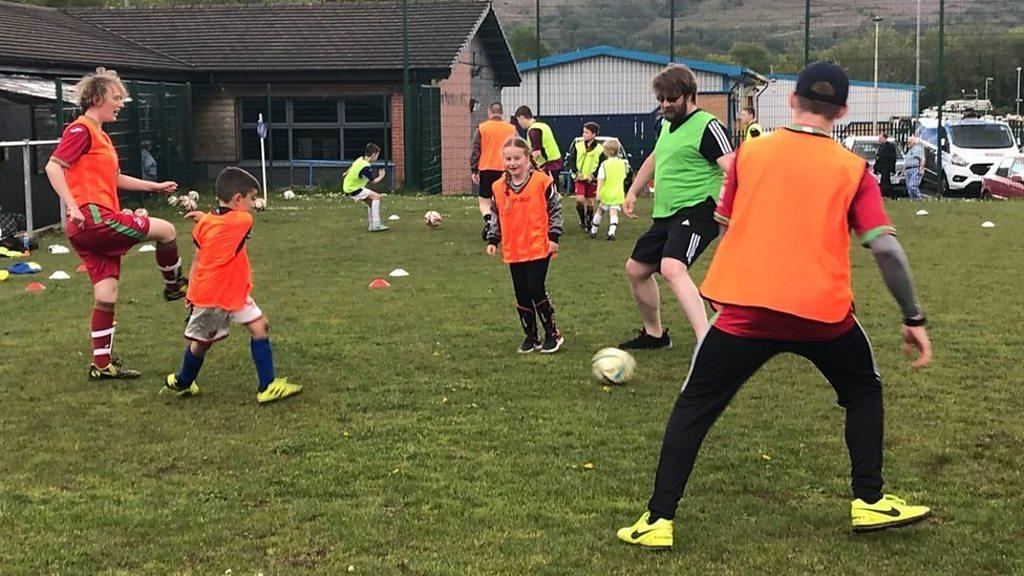
- Published8 March 2019
